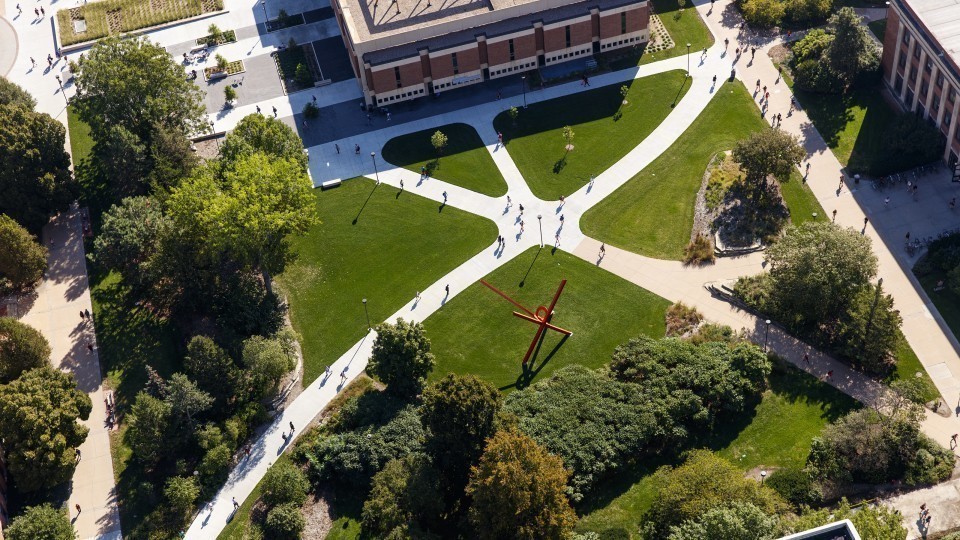
Archived Story: This article is part of our newsletter archives. It has
been preserved for reference, but the information may no longer be current.
The Center for Transformative Teaching funded 14 exciting projects in its most recent round of teaching grants. The call was focused on experiential learning and successful applicants came from every college.
The call was open to all who teach classes serving UNL students, and each successful applicant received $1,000 to develop experiential learning projects for a course or courses.
Funding projects include, but are not limited to:
- entomology students and instructors exploring ways to resist insect pests in crops
- engineering students working with instructors to improve the curriculum
- criminology and criminal justice instructors providing students the opportunity to experience challenges facing first responders
- architecture instructors working with students to imagine new uses for Old City Hall in Lincoln
- biochemistry proposal focusing on reducing DFW rates through more experiential approaches to learning.
The featured virtual reality experience during the CTT’s Fall 2022 Teaching and Learning Symposium sparked one idea.
"Charles Murrieta and I attended the CTT teaching and learning symposium last November where one of the themes was virtual reality. This inspired us to think about how we might make the forensic property on East Campus, where we conduct insect succession research and hold CSI classes, accessible to more students, such as students with disabilities or distance students. We thought that a great way to accomplish this goal would be to create a 360 video of all the CSI “stations” (i.e., decomposing pig to study forensic insect activity, blood spatter, shallow grave, bullet ridden car, etc.). It will also include exercises that the students can answer as they watch the virtual reality videos, viewable through VR glasses, computers, phones, or tablets. In addition, these videos will allow students who attended class in person the opportunity to revisit the stations, or students who were ill on the day of class to review what they missed." — Erin Bauer
Institutional focus on improving learning experiences for a diverse student body inspired other projects.
"I am thankful for the CTT and the university for supporting my contributions to the improvement of teaching and learning in my course. I am looking forward to developing this pedagogical intervention for the benefit of my students, in particular for first-generation students and underrepresented students. Due to the nature of my large enrolment course, this grant will have a broad impact in the lives of many students from many backgrounds and majors." — Didier Mena
Mena’s project will take an interdisciplinary approach to developing a pre-course to BIOC 431, Biochemistry I: Structure and Metabolism.
This is the fourth year the CTT has offered teaching grants that are themed according to an aspect of the N2025 strategic plan. The grants are offered under three categories: student-faculty collaboration, pedagogic interventions, and an incubation fund. The first is designed to spark collaborations between instructors and students, the second to provide resources for one-off activities instructors would not typically be able to fund, and the third is designed to provide seed money for ideas that need proof-of-concept or early development ahead of larger grant applications.
For an in-depth overview of experiential education, visit the CTT website. For assistance in designing or redesigning courses or learning experiences for students to meet experiential learning requirements, contact an instructional designer assigned to your college.
More details at: https://teaching.unl.edu/opportunities/teaching-grants/